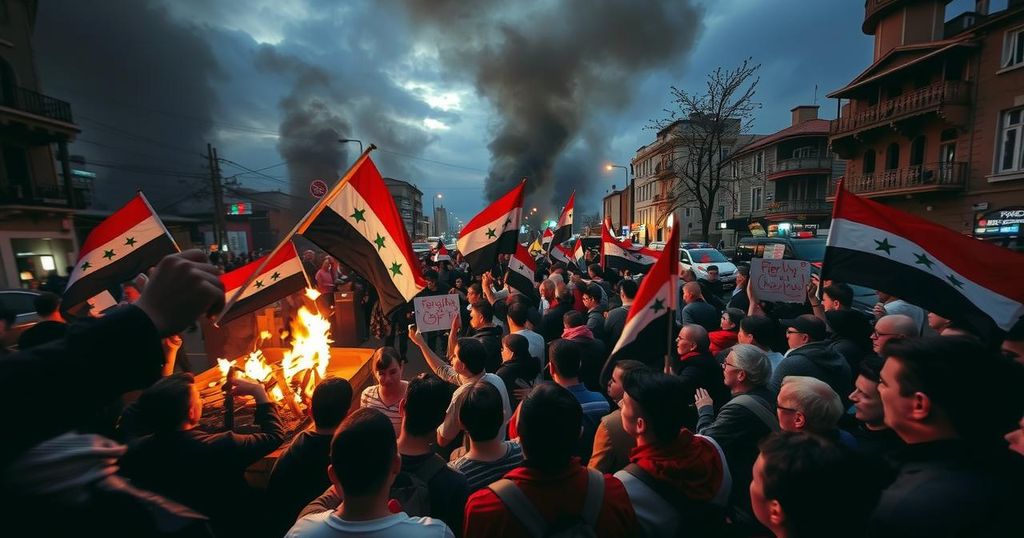Aleppo has become the focal point of renewed fighting in Syria as insurgents, led by Hayat Tahrir al-Sham, captured the city in a surprising offensive. This marks the first significant rebel action in Aleppo since 2016, raising concerns about potential regional destabilization. In response, the Syrian military has launched airstrikes against the rebels, amidst a backdrop of complex international involvement. Observers note that the conflict could escalate, impacting nations like Russia and Turkiye.
In a recent surge of violence, Aleppo has emerged as a key battleground in Syria’s civil war, following a surprise offensive by insurgents. This successful capture of the city represents the first significant rebel action in Aleppo since 2016, bringing renewed attention to the long-standing conflict. The offensive, predominantly led by Hayat Tahrir al-Sham, has resulted in intensified military engagements, as Syrian governmental forces respond with airstrikes aimed at quelling the insurrection.
The geography surrounding Aleppo, strategically located between Idlib and Hama provinces, plays a crucial role in this renewed conflict. The broader implications of this assault are alarming, potentially destabilizing the region and complicating the already intricate interplay of international powers involved in Syria. Analysts observe that the political and military dynamics are shifting, and the potential for escalating hostilities looms large.
Robert Ford, the last United States ambassador to Syria, highlighted recent developments that may have emboldened the rebels, including Israeli military actions on Syrian soil and Russia’s preoccupation with the conflict in Ukraine. His insights suggest that these factors could have influenced the timing and audacity of the offensive, indicating a complex and multifaceted conflict environment.
The resurgence of fighting in Aleppo symbolically shifts the focus of the civil war, raising concerns regarding the potential for an expanded regional conflict, with countries such as Russia and Turkiye possibly becoming more deeply involved. The repercussions of these developments are significant, and the international community watches closely as events unfold in this critical area of Syria.
Aleppo has historically served as a pivotal center of control in Syria, with its fall representing a considerable gain for opposition forces. The civil war, which began in 2011, has seen numerous shifts in power dynamics, with various insurgent groups vying for influence amidst the backdrop of international intervention. The long-standing siege and multiple failed peace efforts have led to a complicated situation that now faces renewed violence. Understanding the context of this renewed offensive provides insights into the entrenched complexities that characterize Syria’s ongoing conflict.
The recent events in Aleppo serve as a stark reminder of the volatility of Syria’s civil war and its potential to flare into wider regional confrontations. The successful rebel offensive, the first in several years, signifies a notable shift in the conflict landscape. With major international powers like Russia and Turkiye becoming increasingly involved, the situation calls for vigilant observation to anticipate further developments that could drastically alter the geopolitical landscape of the Middle East.
Original Source: www.devdiscourse.com







